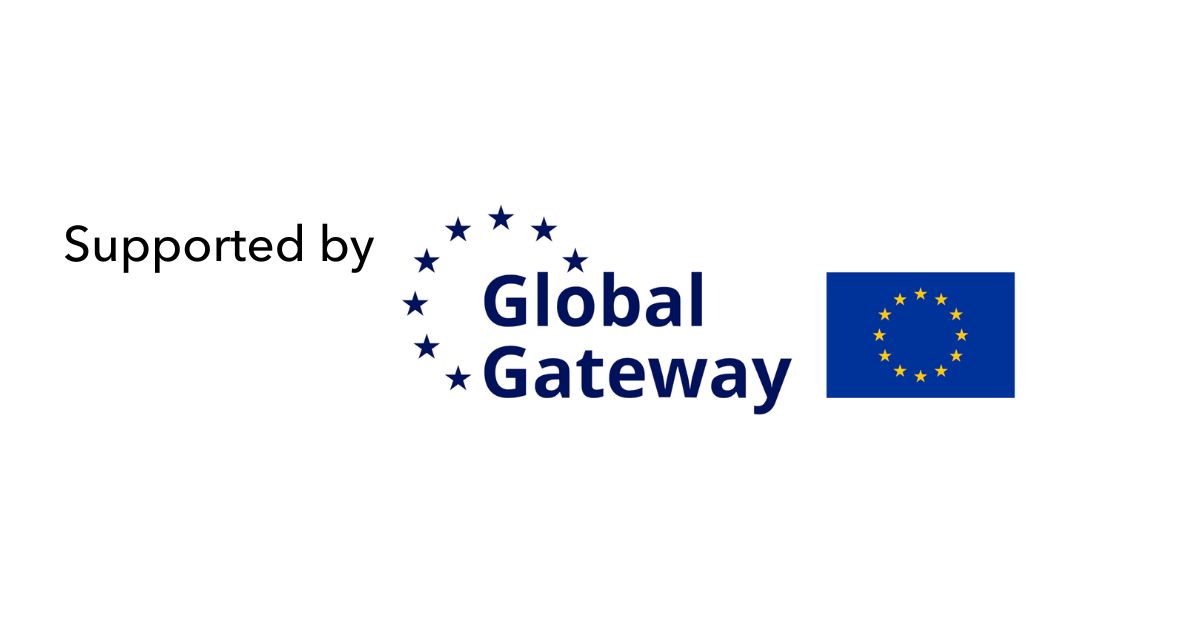Kenya
- Ghazi Mabrouk
- Jonathan Mwakijele
- Annitah Rodah Natwati
- Angel Draev
Intermediate


Description
The digital transformation in the public sector course is designed to provide a comprehensive understanding of how digital technologies can revolutionize public service and governance. Through a mix of theoretical insights, practical examples from global initiatives and hands-on exercises, learners will explore strategies for implementing digital changes within their organization. This course aims to equip learners with the skills and knowledge to lead and participate in digital transformation effectively. With the generous support of Global Gateway, participation is provided free of charge for selected applicants, including accommodation, meals, and other organized activities for a comfortable and immersive learning experience. Participants or their organizations will be responsible for covering their travel expenses to Nairobi, Kenya.
Professionals working within the government or state-owned enterprises who are keen on leveraging digital technologies to enhance service delivering, operational efficiency and governance.
The maximum number of participants is limited to 30 people.
Members of the above-mentioned target population are invited to apply for the training if they meet the following criteria:
• Hold an undergraduate degree in a relevant field or have a minimum of three years of experience in the field of digital transformation if they do not hold a university degree.
• Possess a fluent level of English.
• Complete the application questionnaire and attach an up-to-date CV, a recommendation letter from their employer, or a motivation letter.
• Government officials and policymakers from developing countries, particularly women, are encouraged to apply.
• Selection will be conducted by the course organizers, who will consider the above entry requirements along with an analysis of the application questionnaire and the recommendation/motivation letter of each applicant.
Upon completing this course, participants will be able to:
- Define digital transformation and distinguish it from digitization.
- Identify opportunities for implementing digital transformation in their organization.
- Craft strategies to manage organization change promote digital culture and address resistance to digital initiatives.
- Promote digital transformation
- The training will be designed based on adult learning principles, incorporating active learning methods, real-world case studies, and group discussions.
- The ITU Academy platform will be used for self-paced e-learning modules, assessments, and resource sharing.
- Instructors will act as facilitators, guiding participants through learning and providing personalized feedback.
- Participants will have at least two quizzes each day and will account for 40 points.
- Final Quiz on the last day will account for 10 points.
- Group Assignment will account for 20 points.
- End-of-course assignment will account for 30 points.
A total score of 70% or higher is required to obtain the ITU certificate.
Day 1
- Topics covered:
- Introduction to Digital Transformation: Defining Digital Transformation, Drivers and Trends, Benefits and Challenges
- Strategy and Governance in Digital Transformation: Preparation and Initiation, Strategy Formulation, Ensure Implementation, Monitoring and Evaluation
- Key learning points:
- Describe the concept of digital transformation and its importance in the public sector, distinguishing it from mere digitization.
- Develop skills to create and implement digital transformation strategies that align with organizational goals and governance structures.
Day 2
- Topics covered:
- Citizen-Centric Digital Services: Understanding User Needs and Expectations, Designing User-Friendly Interfaces and Experiences, Omnichannel Service Delivery
- Data Management and Digital Technologies: Data Governance and Security, Leveraging Data Analytics for Decision-Making, Emerging Technologies in Public Services
- Key learning points:
- Design and deliver digital services focusing on user needs, ensuring accessibility, usability, and engagement.
- Gain insights into the effective management of data and the application of emerging technologies in the public sector.
Day 3
- Topics covered:
- Change Management and Digital Culture: Leading Change in the Public Sector, Developing a Digital Workforce, Building Digital Trust and Transparency
- Practical Application and Project Management: Project Management Fundamentals for Digital Transformation, Developing a Digital Transformation Roadmap, Evaluating and Measuring Success
- Key learning points:
- Equip learners with strategies to manage organizational change, promote a digital culture, and address resistance to digital initiatives.
- Apply knowledge gained in previous modules to plan, execute, and manage digital transformation projects within the public sector.
Day 4
- Topics covered:
- Security and Privacy: Essential Cybersecurity Principles, Securing Public Information and Systems, Building a Culture of Security Awareness, Understanding Data Privacy Rights, Data Minimization and Responsible Use, Transparency and Public Trust, Collaboration and Information Sharing, Enhancing Protection of Personal Information, Accountability for Data Breaches
- Ethics: Ethical Considerations in Technology Use, Algorithmic Transparency and Accountability, Public Interest and Public Dialogue
- Key learning points:
- Identify and apply fundamental cybersecurity measures to protect public information and systems in daily work.
- Understand the reporting procedures for suspected security incidents, embracing a security-conscious mindset, and collaborating to create a culture of shared responsibility for protecting public data.
- Advocate for the ethical use of technology, promoting fairness and equity for all citizens, and aligning their work with core public sector values.
- Build public trust in digital transformation initiatives by demonstrating responsible data stewardship and ethical practices.
- Understand the importance of transparency in data practices, facilitating public access to information, and fostering open dialogue about the use of technology in the public sector.
Day 5
- Topics covered:
- Case Studies and Best Practices: Analyze and learn from real-world examples of digital transformation in various governments and public sector organizations.
- Key learning points:
- Apply knowledge from case studies to improve digital transformation efforts in participants' own organizations.
- Complete final quiz covering all the topics
- End-of-course assignment to be submitted at ITU Academy one week after the training.









